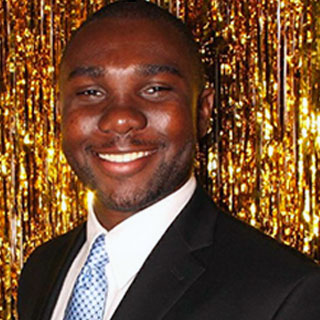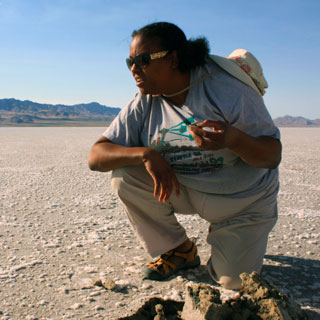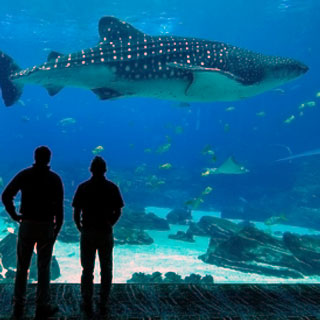Bachelor's Degree in Biology Overview
Georgia Tech’s bachelor of science in Biology degree offers students an outstanding education in the life sciences and excellent preparation for future careers in biological and health-related fields. The B.S. in Biology degree offers:
- Flexible degree options: The degree can be customized to fit specific interests and career goals.
- Undergraduate research: From research courses to international research trips, internships, and teaching experiences, the possibilities are endless.
- Atlanta: One of the most tech-savvy cities in the U.S. and home to some of the world’s biggest companies.
As a Biology major, you will develop a basic competence and knowledge of biological processes, including cell and molecular biology, genetics, ecology, and evolution. You will develop a strong understanding of scientific thinking, as well as the know-how to apply scientific methodology to solve real-life problems.
Undergraduate Biology Degree Concentrations and Options
Concentrations
Customize your curriculum plan to match your specific interests and career plans.
- Focus your electives to earn a Biological Sciences Certificate in these areas:
- Biomedical Science
- Biomolecular Technology
- Bio-Inspired Design
- Computational & Quantitative Biology
- Environmental Science
- Marine Science
- Integrative Biology
- Applied Physiology
- Build a business perspective into your degree. Learn about the Business Option.
- Go above and beyond the minimum pre-health requirements without adding extra hours to your degree. Learn about the Pre-Health Track.
Options
Increase your competitiveness for jobs and graduate school by adding a designation to your degree.
- Pursue an in-depth, long-term research experience. Learn more about the Research Option.
- Develop cultural competency and prepare for a global career. Learn more about the International Plan.
Bachelor's Degree in Biology Requirements
The Bachelor’s in Biology degree requirements include general education core classes; foundational science courses; Biology core courses to provide a strong background in biological thinking; technical Biology electives to explore content areas in greater depth, and experiential learning to apply biological concepts to undergraduate research, internships, or teaching. Download a suggested four-year schedule.
Biology Degree Courses
- Biological Principles and Organismal Biology: A two-semester introduction to the basic principles of modern biology, including biomacromolecules, bioenergetics, cell structure, genetics, homeostasis, evolution, ecological relationships, and organisms.
- Ecology: Introduction to ecological processes at individual, population, and community levels that occur in plant, animal, and microbial taxa, and their relevance to current environmental problems.
- Genetics: A rigorous introduction to molecular and population genetics that includes modern gene editing techniques.
- Cell and Molecular Biology: A deeper dive into the structure and function of cells and their organelles with emphasis on eukaryotic cellular and molecular processes.*
- Experimental Design and Statistics: Theory and practice on how to apply the appropriate parametric statistics to datasets for correct biological interpretation.*
*Program alumni who attend Medical School highlight these courses, among others, as instrumental to their success.
View all of the B.S. in Biology requirements and course descriptions
Rankings and Awards
Georgia Tech’s School of Biology faculty members are frequently recognized for their outstanding contributions to their fields. Examples of such recognition include:
- Mark E. Hay, Regents Professor and Harry and Linda Teasley Chair in the School of Biological Sciences at Georgia Tech, is the recipient of the 2018 Gilbert Morgan Smith Medal of the National Academy of Sciences. The award recognizes excellence in published research on marine and freshwater algae.
- For his contributions to the field of viral ecology, Joshua Weitz has been elected a fellow of the American Association for the Advancement of Science.
- Brian Hammer and Joel Kostka have been named American Society for Microbiology (ASM) Distinguished Lecturers.
- T. Richard Nichols, a professor in the School of Biological Sciences, has been named an honorary member of the American Physical Therapy Association.
- Francesca Storici is a Howard Hughes Medical Institute (HHMI) Faculty Scholar, supporting her innovative research in RNA-driven DNA repair and genome editing.
What Can You Do with a Degree in Biology?
The undergraduate curriculum for the Bachelor of Science in Biology degree is designed to prepare students for employment in academia, government, or industry; for science teaching or graduate studies in the biological sciences; or for admission to medical, dental, or veterinary schools.
What Are Georgia Tech Graduates Doing Now?
They are:
- Medical students.
- Graduate students at highly ranked U.S. universities.
- Physician’s assistants.
- Clinical research coordinators.
- Product researchers.
Meet School of Biological Sciences alumni
Biology Research for Undergraduates
- Georgia Tech has one of the biggest research enterprises in the country and provides exceptional research opportunities to Biology majors. You'll have the opportunity to join a lab team led by a faculty mentor who will guide you in cutting-edge biological research. Find out more about opportunities in undergraduate research
Beyond the Classroom
- Join one of the many Biology-related student organizations. See what’s available here.
- Gain direct, hands-on experience using your Biology degree in ways that can lead to employment directly after graduation. Find out more about Biology internships.
- Work closely with Biology faculty members to deliver content in introductory Biology labs and Biology core courses. Find out more about Biology Teaching Assistant opportunities.
- Develop new skills and contribute to a long-term research goal. Find out more about Vertically Integrated Projects.
- Study Biology around the world. Learn more about our international opportunities.
Stories from the School of Biological Sciences

Undergrad with a Genuine Passion for Medicine and Service

How a Research Fellow Creates a Career in Astrobiology

Meet Shana Kerr, Extraordinary Educator

Tiny Bacteria Do a Big Job for a Huge Fish Tank
Related Degrees
Related Websites
Next Steps
(text and background only visible when logged in)